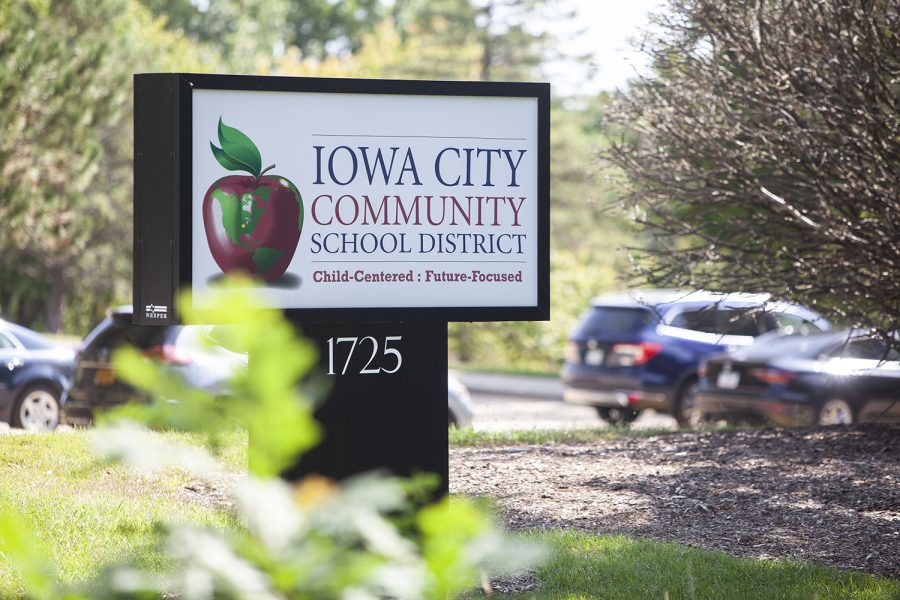For about two and a half years, the Iowa City Community School District was able to provide free lunches for all students thanks to federal COVID-relief funding.
But with that money no longer available and faced with losing money because of negative student accounts, the district was forced to return to its pre-COVID school lunch policy this school year.
Families that fall into a certain income bracket may apply for federally funded free and reduced meals. The district is reimbursed for every meal it provides for a student and reimbursement increases for those who purchase a reduced meal.
Additionally, the district receives total reimbursement for students who qualify for completely free meals.
Although free and reduced meals are provided, not all families that qualify for the program actually apply. Because of this, some students will have negative accounts, but still receive a free meal at school.
Iowa City schools Nutrition Services Director Alison Demory is working with families to remedy negative accounts and provide students with meals.
“We want to nourish minds,” Demory said during a presentation at the Iowa City school board meeting on Oct. 10.
In 2018, the Iowa state legislature passed a bill prohibiting public shaming in schools of students who have negative balances. Things that fall under public shaming include posting lists of students with negative balances, providing free meals that look different than everyone else’s, or making students work in the school to receive a meal.
“We never deny students meals,” Demory said. “We work with kids to try to get applications in for free and reduced meals if we see that they are negative and struggling. Not only do we not deny a meal, we don’t give them a meal that looks different than anybody else.”
Other school districts in Johnson County are following the same protocols.
“We follow the state’s guidance: All students may take a reimbursable meal, regardless of their account balance,” Missy Ortman, the Clear Creek-Amana School District food service director, said.
Although every student will always receive a meal, this could lead to debt in the nutrition services department. Nutrition services is a categorically funded department and receives no direct money from the district.
Since the department must be self-sustaining, it is sometimes forced to toe the line between making money for the next school year and taking care of every current student’s needs.
“I think sometimes the school districts and nutrition departments get painted in a negative light,” Demory said. “There’s not a school director or nutrition director in the state of Iowa that wants to be a bill collector — we take these jobs because we want to feed kids.”
Another source of negative lunch accounts is families who are just on the border of the income bracket necessary to qualify for the free and reduced program.
“There are families that don’t maybe qualify for free and reduced, but are struggling,” Demory said. “In fact, sometimes it’s harder for those folks that are just on the edges that don’t quite qualify but can’t make ends meet.”
To aid this issue, an Iowa City foundation has started a campaign called “One Tray at a Time,” which allows anyone in the community to donate money that will go toward paying off negative accounts.
The campaign was brought up at the ICCSD school board meeting on Oct. 10, and board member Maka Pilcher Hayek was in favor of spreading the word about One Tray at a Time on social media as well as to parent organizations in all the district schools.
“I love that you guys have started One Tray at a Time,” Pilcher Hayek said during the meeting. “It’s such a bright, wonderful campaign because I do think there’s a lot of community interest in helping.”



